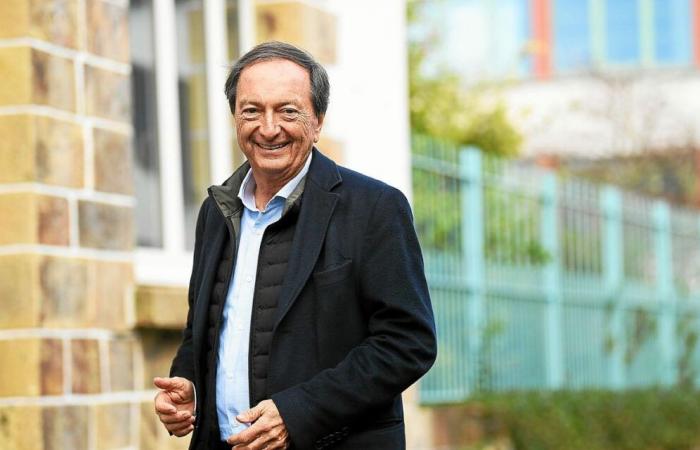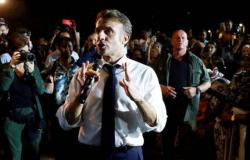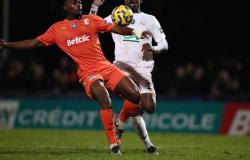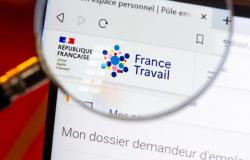
What images do you keep of your first years in Landerneau and your parents' beginnings?
My parents opened the first store in 1949, in a house, which no longer exists, at 13 rue des Capucins (at the corner of rue Bélérit and rue des écoles). It was not yet called the Leclerc center. I was born in 1952, there was a room for my parents, a room for my sister and me. And above that, storage, with the lightest on the first floor. I still remember the smells of the Bonux laundry detergent packets. There was also the living room – dining room, where the first items were sold. It was also the place where my father received suppliers and representatives before building his store as an extension of the house. I remember seeing him build it, with his plumb line. I accessed the store through the house, I remember the heavy packets of sugar, with their kraft paper.
I went to school in Saint-Julien then in Saint-Joseph with children whose parents thought, at best, that my father was a nice “crazy person”, at worst that he was ruining the profession.
You lived your first years almost in a store…
We didn't live in a house, but rather a sort of warehouse house. My sister Hélène and I were raised in a house with a hallway, a kitchen where we ate quickly, among employees, suppliers and delivery men. My father often left to collect the goods with his van. I remember parents who were always dressed somewhat the same, very hardworking, and incessantly active. We were always in the hands of the employees: there were two daughters, Martin de la Roche-Maurice, Yvonne and Lucienne, then very quickly a secretary, Liliane Balcon, who would stay with my parents. Marie-Paule Peucat too, who would later marry Paul Leclerc, a brother of my father who was also one of his competitors. Very quickly, people went up to the store. Those who come buy few things, but stay a long time. There are very few references, but always new things. Lots of sweets, three kinds of coffee: green, red and yellow, canned goods too, milk in a jug…
Was it difficult for a young boy to be the son of Édouard Leclerc?
I went to school in Saint-Julien then in Saint-Joseph with children whose parents thought, at best, that my father was a nice “crazy person”, at worst that he was ruining the profession. I didn't have many friends at school, it was complicated. I remember the son of the baker Mével, the son of the notary Cansot. On the other hand, we had a very family relationship with the employees, they were the ones who taught me how to ride a bike. There was also this doctor, not from the house, who was passionate about jazz and who invited my mother and us children. I owe him a lot: he discovered a tumor in my skull, I had an operation at three years old and I survived thanks to him. At ten years old, I went to boarding school, at a time when my father had antagonistic relationships with other traders. Afterwards, Landerneau became a vacation town for me. But I have memories written in indelible ink, where the entire history of three generations of Leclerc centers is written.
How did you spend your free time in those years of your youth?
I hung around town quite a bit. If my grandfather Eugène Leclerc aroused fear, my other grandfather, Jean Diquelou, was very appreciated. For me, Landerneau was also the store of my grandfather Diquelou, who was the photographer for weddings and ceremonies. I also remember that I fished for eels and plaice at the corner of the inhabited bridge, where the bookseller is located today. It was also in Landerneau, a little later, that I had my first social revelation, that I discovered poverty. With Désiré Labbé, who died a few years ago, we were going to dump the trash in vacant lots. It was he who showed me all these people who lived in extreme poverty, who made me discover that in a small, happy and bourgeois provincial town, poverty existed.
From the start, Édouard Leclerc understood communication, understood that we need to take action and make it known. If you don't have the means to settle down where people go, you have to say why you are attractive.
Very quickly, your father became known for his innovative business methods. Were you already aware of this at the time?
Behind the store, there was a garden, where the Fund parking lot is today, which I knew until I was six or seven years old. Then it disappeared because returnable bottles accumulated there. It was a brilliant move from my father: he decided to buy the bottles a penny more expensive than the competition. Everyone started bringing their returnable bottles. It was the very pragmatic and brilliant side of a father who did things, who offered services or advantages. From the start, Édouard Leclerc understood communication, understood that we need to take action and make it known. If you don't have the means to settle down where people go, you have to say why you are attractive. Afterwards, it works, or not, but we will have talked about Édouard Leclerc.
News
France





